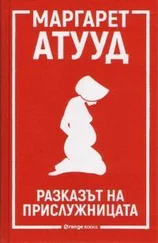I have chosen my title advisedly, for what else am I doing here but defending my life? The life I have led. The life—I’ve told myself—I had no choice but to lead. Once, before the advent of the present regime, I gave no thought to a defence of my life. I didn’t think it was necessary. I was a family court judge, a position I’d gained through decades of hardscrabble work and arduous professional climbing, and I had been performing that function as equitably as I could. I’d acted for the betterment of the world as I saw that betterment, within the practical limits of my profession. I’d contributed to charities, I’d voted in elections both federal and municipal, I’d held worthy opinions. I’d assumed I was living virtuously; I’d assumed my virtue would be moderately applauded.
Though I realized how very wrong I had been about this, and about many other things, on the day I was arrested.
IV
THE CLOTHES HOUND

Transcript of Witness Testimony 369B
They say I will always have the scar, but I’m almost better; so yes, I think I’m strong enough to do this now. You’ve said that you’d like me to tell you how I got involved in this whole story, so I’ll try; though it’s hard to know where to begin.
I’ll start just before my birthday, or what I used to believe was my birthday. Neil and Melanie lied to me about that: they’d done it for the best of reasons and they’d meant really well, but when I first found out about it I was very angry at them. Keeping up my anger was difficult, though, because by that time they were dead. You can be angry at dead people, but you can never have a conversation about what they did; or you can only have one side of it. And I felt guilty as well as angry, because they’d been murdered, and I believed then that their murder was my fault.
I was supposed to be turning sixteen. What I was most looking forward to was getting my driver’s licence. I felt too old for a birthday party, though Melanie always got me a cake and ice cream and sang “Daisy, Daisy, give me your answer true,” an old song I’d loved as a child and was now finding embarrassing. I did get the cake, later—chocolate cake, vanilla ice cream, my favourites—but by then I couldn’t eat it. By that time Melanie was no longer there.
That birthday was the day I discovered that I was a fraud. Or not a fraud, like a bad magician: a fake, like a fake antique. I was a forgery, done on purpose. I was so young at that moment—just a split second ago, it seems—but I’m not young anymore. How little time it takes to change a face: carve it like wood, harden it. No more of that wide-eyed daydream gazing I used to do. I’ve become sharper, more focused. I’ve become narrowed.
—
Neil and Melanie were my parents; they ran a store called The Clothes Hound. It was basically used clothing: Melanie called it “previously loved” because she said “used” meant “exploited.” The sign outside showed a smiling pink poodle in a fluffy skirt with a pink bow on its head, carrying a shopping bag. Underneath was a slogan in italics and quotation marks: “You’d Never Know!” That meant the used clothes were so good you’d never know they were used, but that wasn’t true at all because most of the clothes were crappy.
Melanie said she’d inherited The Clothes Hound from her grandmother. She also said she knew the sign was old-fashioned, but people were familiar with it and it would be disrespectful to change it now.
Our store was on Queen West, in a stretch of blocks that had once all been like that, said Melanie—textiles, buttons and trims, cheap linens, dollar stores. But now it was going upmarket: cafés with fair trade and organic were moving in, big-brand outlets, name boutiques. In response, Melanie hung a sign in the window: Wearable Art . But inside, the store was crowded with all kinds of clothes you would never call wearable art. There was one corner that was kind of designer, though anything really pricey wouldn’t be in The Clothes Hound in the first place. The rest was just everything. And all sorts of people came and went: young, old, looking for bargains or finds, or just looking. Or selling: even street people would try to get a few dollars for T-shirts they’d picked up at garage sales.
Melanie worked on the main floor. She wore bright colours, like orange and hot pink, because she said they created a positive and energetic atmosphere, and anyway she was part gypsy at heart. She was always brisk and smiling, though on the lookout for shoplifting. After closing, she sorted and packed: this for charity, this for rags, this for Wearable Art. While doing the sorting she’d sing tunes from musicals—old ones from long ago. “Oh what a beautiful morning” was one of her favourites, and “When you walk through a storm.” I would get irritated by her singing; I’m sorry about that now.
Sometimes she’d get overwhelmed: there was too much fabric, it was like the ocean, waves of cloth coming in and threatening to drown her. Cashmere! Who was going to buy thirty-year-old cashmere? It didn’t improve with age, she would say—not like her.
Neil had a beard that was going grey and wasn’t always trimmed, and he didn’t have much hair. He didn’t look like a businessman, but he handled what they called “the money end”: the invoices, the accounting, the taxes. He had his office on the second floor, up a flight of rubber-treaded stairs. He had a computer and a filing cabinet and a safe, but otherwise that room wasn’t much like an office: it was just as crowded and cluttered as the store because Neil liked to collect things. Wind-up music boxes, he had a number of those. Clocks, a lot of different clocks. Old adding machines that worked with a handle. Plastic toys that walked or hopped across the floor, such as bears and frogs and sets of false teeth. A slide projector for the kind of coloured slides that nobody had anymore. Cameras—he liked ancient cameras. Some of them could take better pictures than anything nowadays, he’d say. He had one whole shelf with nothing on it but cameras.
One time he left the safe open and I looked inside. Instead of the wads of money I’d been expecting, there was nothing in it but a tiny metal-and-glass thing that I thought must be another toy, like the hopping false teeth. But I couldn’t see where to wind it up, and I was afraid to touch it because it was old.
“Can I play with it?” I asked Neil.
“Play with what?”
“That toy in the safe.”
“Not today,” he said, smiling. “Maybe when you’re older.” Then he shut the safe door, and I forgot about the strange little toy until it was time for me to remember it, and to understand what it was.
Neil would try to repair the various items, though often he failed because he couldn’t find the parts. Then the things would just sit there, “collecting dust,” said Melanie. Neil hated throwing anything out.
On the walls he had some old posters: LOOSE LIPS SINK SHIPS, from a long-ago war; a woman in overalls flexing her biceps to show that women could make bombs—that was from the same olden-days war; and a red-and-black one showing a man and a flag that Neil said was from Russia before it was Russia. Those had belonged to his great-grandfather, who’d lived in Winnipeg. I knew nothing about Winnipeg except that it was cold.
I loved The Clothes Hound when I was little: it was like a cave full of treasures. I wasn’t supposed to be in Neil’s office by myself because I might “touch things,” and then I might break them. But I could play with the wind-up toys and the music boxes and the adding machines, under supervision. Not the cameras though, because they were too valuable, said Neil, and anyway there was no film in them, so what would be the point?
Читать дальше
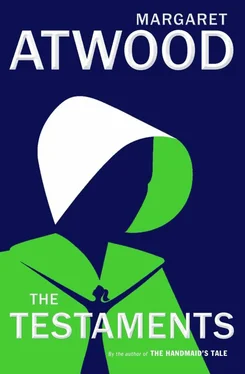

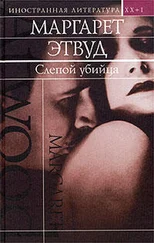
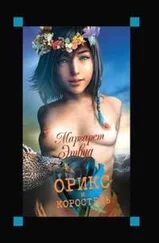
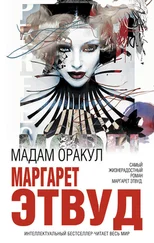
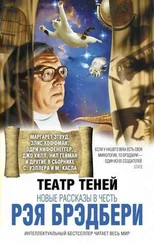
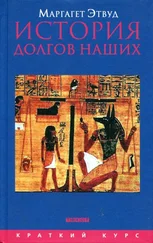
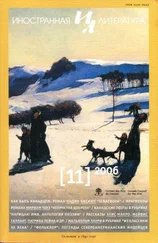
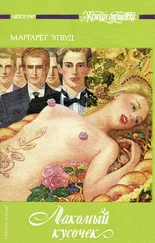
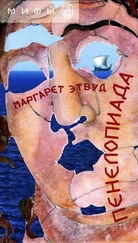
![Маргарет Этвуд - Лакомый кусочек [litres]](/books/384342/margaret-etvud-lakomyj-kusochek-litres-thumb.webp)
![Маргарет Этвуд - Избранные произведения в одном томе [Компиляция]](/books/389748/margaret-etvud-izbrannye-proizvedeniya-v-odnom-tome-thumb.webp)

